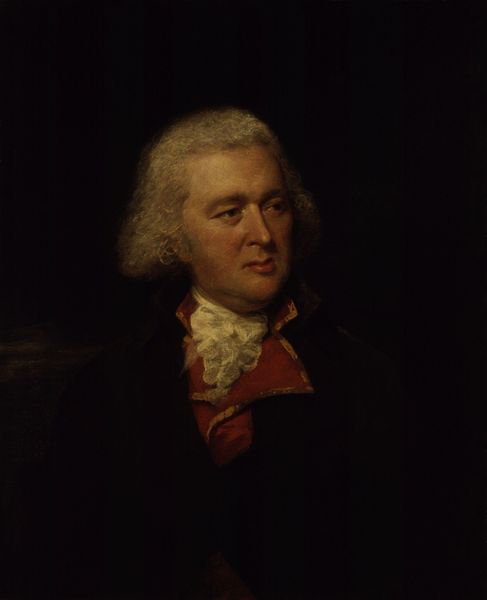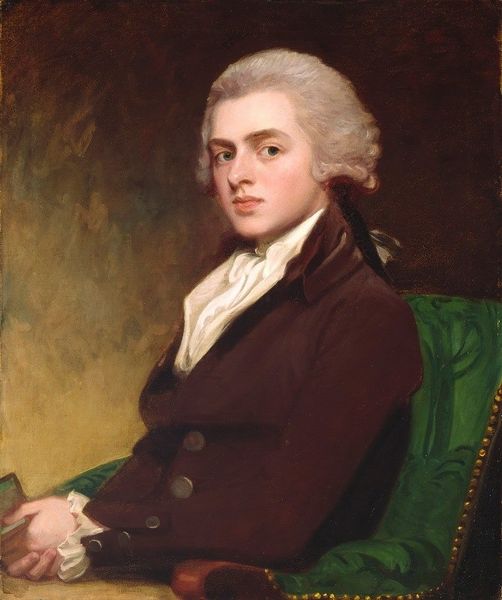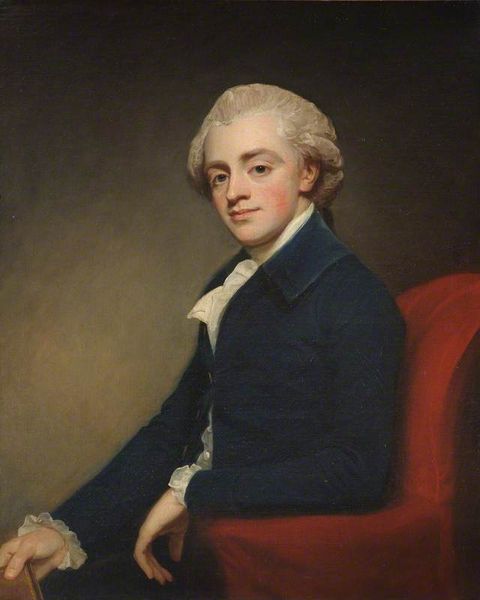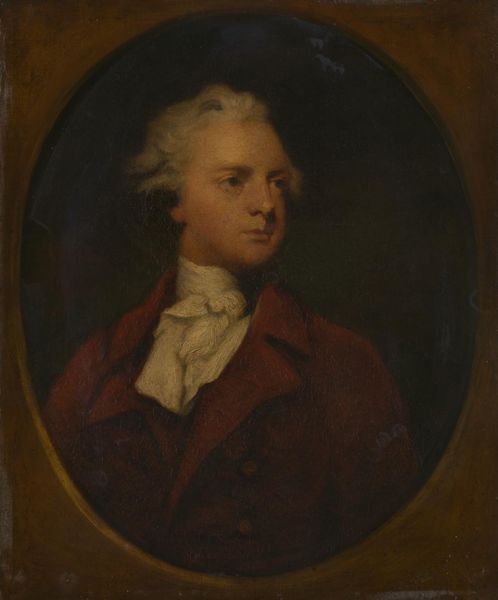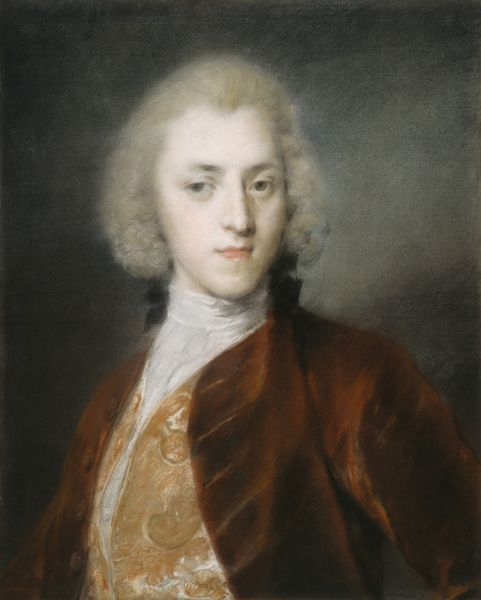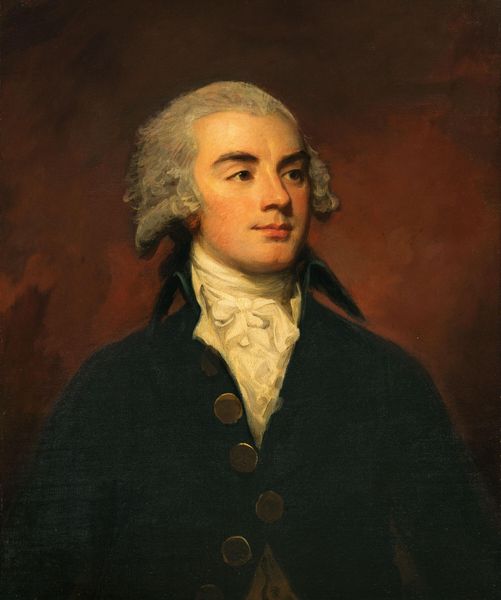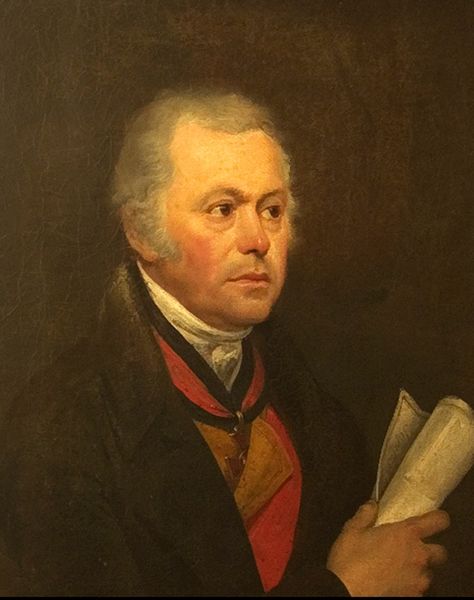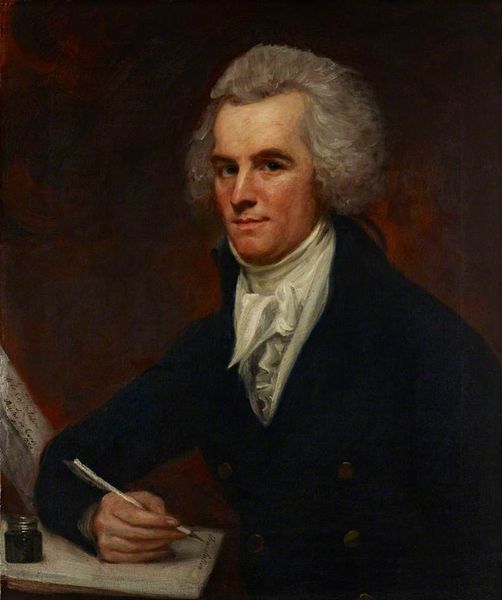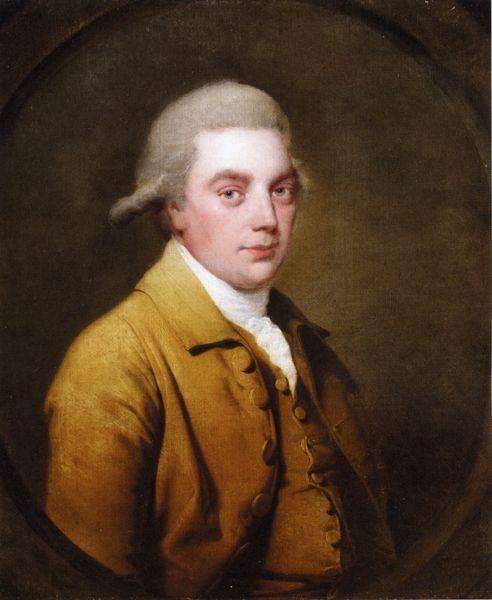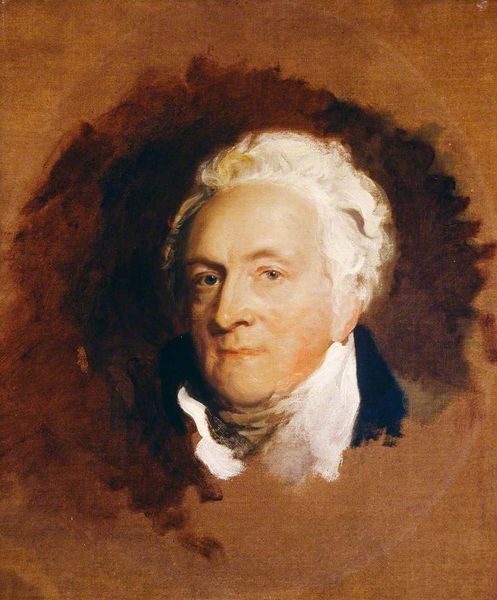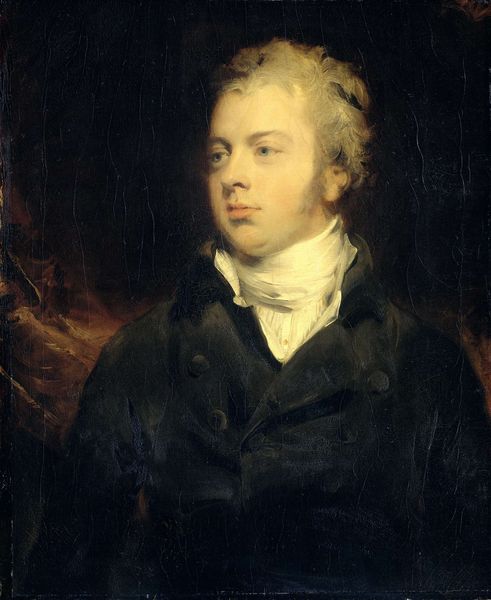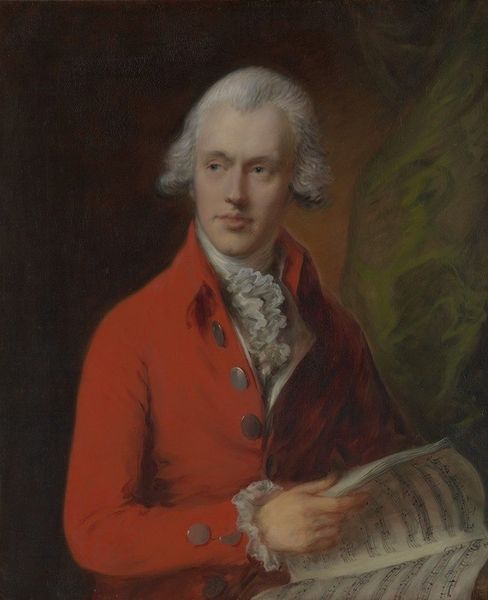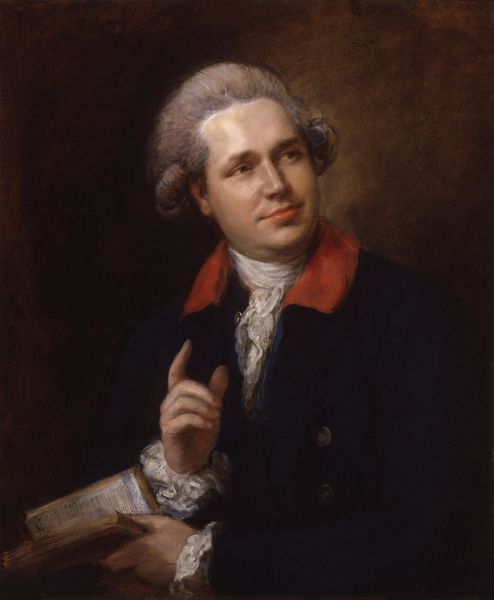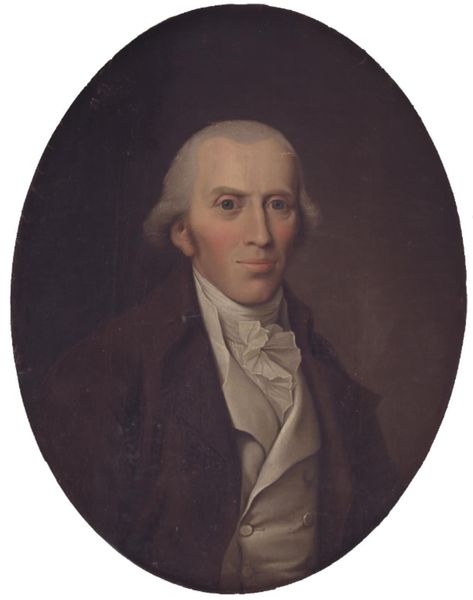
painting, oil-paint
#
portrait
#
neoclacissism
#
painting
#
oil-paint
#
academic-art
Copyright: Public domain
Editor: This is a portrait of William Herschel, likely an oil painting by Lemuel Francis Abbott. I am immediately struck by how much of the canvas is dark. It gives the piece a very serious, almost austere, feeling. How do you interpret this work, and particularly that pervasive darkness? Curator: The darkness is intriguing, isn’t it? Consider the historical moment. We see Neoclassicism emerging, and with it a return to reason, but also immense social stratification and questions of power. The subject, Herschel, an astronomer, is bathed in light, almost spotlit, while remaining grounded by the heavy darkness of the background. Where do you think Herschel fits within that framework? Editor: It suggests a tension – Herschel represents enlightenment and progress, the bright future of science, but he’s still very much a product of his time. The portrait almost confines him. Curator: Exactly! And what about the sitter’s expression, the way he is dressed, the angle of his gaze? The portrait does not aim at revolutionary zeal, but at respectability. A safe place for a scientist, or any person, did not exist outside of strict social conventions. To progress one could only nudge. Do you see evidence of such tension here? Editor: Now that you mention it, he doesn’t directly confront the viewer. He is facing off to the side as if looking to a brighter future that isn't completely realized yet, even he has to glance sideways towards it. The dark canvas feels like a looming status quo that is holding his gaze from meeting ours. Curator: Precisely. Even in celebrating scientific discovery, this painting underscores the societal structures at play, subtly hinting at the complexities and compromises inherent in progress. Thank you, this portrait invites considering not just progress but also cost. Editor: It really makes you think about whose stories get told, and how even portraits like this are products of, and commentaries on, their time. Thanks, I will not look at paintings the same again.
Comments
No comments
Be the first to comment and join the conversation on the ultimate creative platform.
